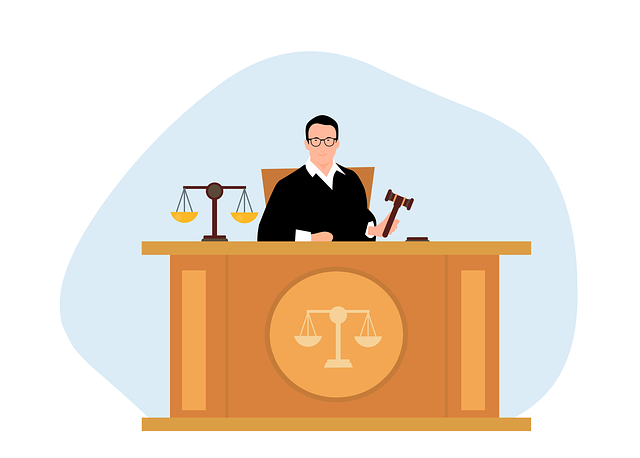Fair trial advocacy is a cornerstone of global criminal justice systems, ensuring equitable treatment for accused individuals. Defense attorneys master principles like legal representation, presumption of innocence, and impartial judges to protect clients' rights. Through research, strategic planning, and communication, they safeguard constitutional rights and counter bias. Effective defense strategies rely on open counsel-client communication and continuous attorney education. Fair trial advocacy protects defendants from interrogation to sentencing, upholding the right to a fair, impartial trial. Continuous education, ethical practice, and staying informed strengthen fair trial advocacy, safeguarding individuals' liberties and justice.
In the pursuit of justice, protecting the rights of criminal defendants is paramount. This article explores key aspects of fair trial advocacy, delving into the principles that underpin a just legal process. We examine the crucial role of legal advocates in safeguarding these rights and dissect strategies to ensure the fundamental right to defense. Furthermore, we navigate challenges, highlighting legal safeguards, and emphasize the importance of strengthening advocacy for those facing criminal charges.
- Understanding Fair Trial Principles
- Role of Legal Advocates in Protection
- Strategies for Ensuring Right to Defense
- Challenges and Legal Safeguards
- Strengthening Advocacy for Criminal Defendants
Understanding Fair Trial Principles

Ensuring a fair trial is a cornerstone of criminal justice systems worldwide, and it’s at the heart of effective criminal defense strategy. Fair trial advocacy involves advocating for procedures and protections that guarantee individuals accused of crimes are treated equitably and have every opportunity to mount a robust defense. This includes the right to legal representation, protection from self-incrimination, the presumption of innocence, and a neutral judge and jury. Understanding these principles is paramount for defense attorneys, who must navigate complex legal landscapes to safeguard their clients’ rights throughout the entire process.
Role of Legal Advocates in Protection

Legal advocates play a pivotal role in protecting rights during criminal defense legal battles, ensuring that every individual accused of a crime receives a fair trial. They act as champions for their clients’ interests, safeguarding them from potential abuses and imbalances in the justice system. Through diligent research, strategic planning, and effective communication, these advocates ensure that all procedural steps are followed rigorously, protecting their client’s constitutional rights.
Moreover, legal advocates employ robust fair trial advocacy techniques to counter any attempts at bias or prejudice. They challenge inadmissible evidence, protect against self-incrimination, and ensure that the burden of proof lies squarely on the prosecution. By upholding these principles, they contribute significantly to a just and equitable criminal justice process.
Strategies for Ensuring Right to Defense

Ensuring the right to defense is paramount in criminal justice systems, serving as a cornerstone for fair trial advocacy. One key strategy involves maintaining open communication between defendants and their legal counsel well before any court appearance. Early engagement allows lawyers to build a robust defense strategy by thoroughly understanding the case details and gathering essential evidence. This proactive approach empowers attorneys to challenge the prosecution’s claims effectively.
Additionally, continuous education and professional development for defense attorneys are vital. Staying updated on legal precedents, new laws, and advanced trial techniques equips them with the knowledge to navigate complex cases. Such preparation enhances their ability to provide robust representation, ensuring defendants receive a fair hearing and the best possible outcome.
Challenges and Legal Safeguards

Criminal defense legal battles are fraught with challenges that can undermine the principle of a fair trial. One of the primary obstacles is ensuring that defendants’ rights are protected throughout the process, from interrogation to sentencing. Legal safeguards, including the right to counsel and protections against self-incrimination, play a pivotal role in preserving fairness.
Advocates for fair trial advocacy must navigate complex legal landscapes to safeguard their clients’ interests. This involves challenging unconstitutional evidence, protecting against arbitrary detention, and ensuring that defendants understand their rights. By leveraging these legal safeguards, defense attorneys can ensure that the criminal justice system remains just and equitable, upholding the fundamental right to a fair and impartial trial.
Strengthening Advocacy for Criminal Defendants

Ensuring fair trial advocacy is a cornerstone in protecting rights during criminal defense legal battles. This involves empowering attorneys to deliver robust representation, ensuring every defendant’s voice is heard and their interests are defended. Effective advocacy includes thorough investigation, meticulous case preparation, and zealous argumentation within the bounds of the law.
Strengthening fair trial advocacy requires ongoing education, ethical practice, and adherence to professional standards. It necessitates a commitment to staying abreast of legal developments, understanding evolving rights, and employing innovative strategies. By fostering a culture of integrity and excellence in criminal defense, we can better protect individuals’ liberties and ensure justice is served.






